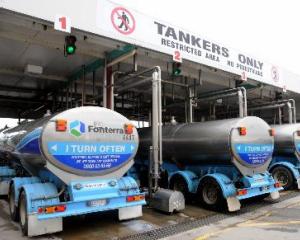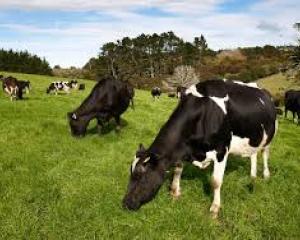Fonterra shareholders have sent a resounding message that they are ready to tackle all-comers by yesterday agreeing in record numbers to change the co-operative's constitution.
Their agreement to carry the risk of share redemption will free up capital for the company to focus on developing markets and products overseas, as well as competing for milk with existing domestic processors and others that many expect will move here from overseas.
Yesterday's agreement by 89.95% of voters to allow the trading of shares between farmers and participation by nearly 8200 of the co-operative's 10,500 shareholders was rightly hailed as a turning point for the co-operative.
The unity displayed yesterday showed Fonterra had listened to its shareholders after the failed 2007 proposal to partially float the company, a misjudgement by the board about just how far down the corporate path they could go.
It also showed the company had turned itself around after early last year facing falling dairy prices, a debt-equity ratio that had blown out to 61.5% and a milk supply eroded by competitors.
Any dissension was well and truly put to bed yesterday by what Fonterra director Ian Farrelly told 140 shareholders in Invercargill was the decision of the decade.
"We have the spirit of a small company but the power of a real international, global company," he said.
Fonterra chairman Sir Henry van der Heyden said there was a real risk an overseas company could set up business here, competing for what is largely a fixed volume of milk.
It already has six domestic competitors and Chinese-backed interests have signalled intent to buy farms and build a dairy processing factory.
Just nine questions were asked at yesterday's special meeting of 900 shareholders linked electronically between seven venues, with just one query, from Palmerston North, opposing the proposal.
Shareholders must own one share for every kilogram of milk solids they produce, and each year the company has to buy shares from those wanting to leave the co-operative or from those who have reduced production.
The drought in 2007-08 was seen as a tipping point for Fonterra, stretching its balance sheet as a result of having to pay out $600 million for surrendered shares.
That has resonated among farmers as being unsustainable, but there is little doubt they also welcome the flexibility the constitutional changes they voted for yesterday would bring.
They also strengthen the co-operative's balance sheet and should allow it to take on its competitors head-on.
Having to pay $500,000 to $1 million for Fonterra shares up front in one hit has seen new suppliers opt to contract to competitors. Those shares can now be bought over three years.
Farmers now have the flexibility to buy shares directly from other suppliers or investment shares equivalent to 200% of milk flow, as cash flow allows.
Equally, establishing the shareholders fund, through which farmers can sell the rights to dividends to investors from their shares plus gains or losses from share price movement, will free up capital.
The 2007 proposal was sunk because farmers did not want to give up ownership or control, but the board has listened and satisfied those concerns by imposing caps on the number of dry shares, the maximum total shareholding and on the number of shares available via the Shareholders Fund.
Company chairman Sir Henry van der Heyden said he wanted a strong voting turnout to send a message that his company was united in purpose, but also to show the Government, which will have to amend the Dairy Industry Restructuring Act, that they had support.
He also stressed the need to build on the company's international success.
The current strength of our economy can largely be attributed to the dairy industry and Fonterra in particular. It can only benefit more from the changes agreed to by Fonterra's shareholders yesterday.






